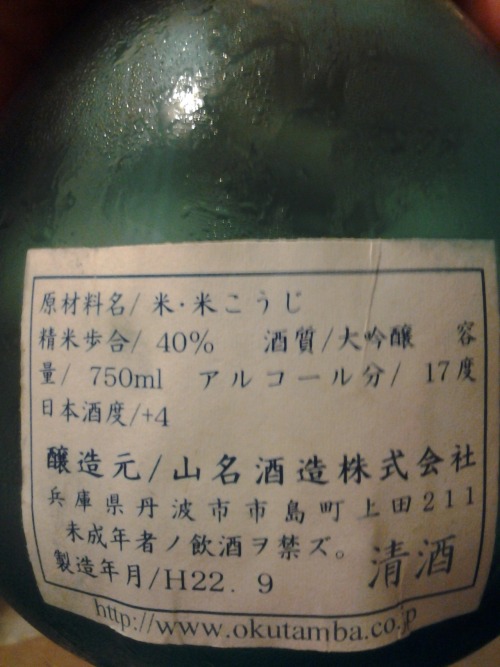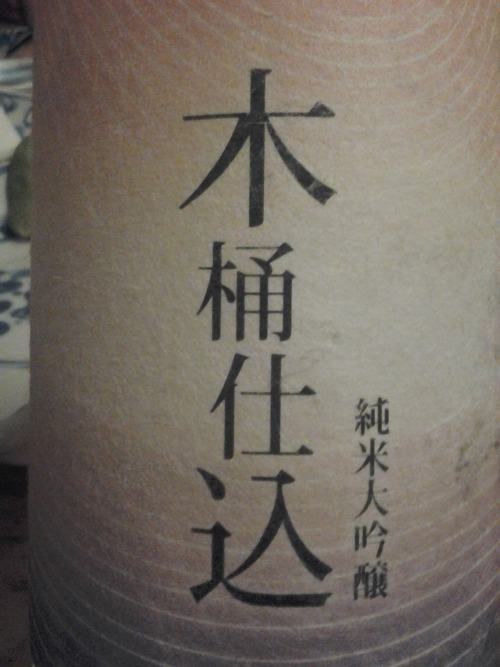

the acetarium is currently more than usually overstocked with obscure sakes, having recently received a few especially abstruse bottles from their japanese correspondents in their regular shipment of ceramics, edibles, and potables. they pulled these two bottles out at dinner last week.
okutamba's yamana brewing company maintains a subscription service for sake nerds interested in exquisite, small-run bottlings—including this bulbous blue bottle containing a light, aromatic alcohol-added daiginjo that was limpid and more water-like than water (the 17% alcohol was not noticeable). 60% of the rice grain was milled away before brewing, removing bran, aleurone layer, germ and leaving only the fermentable starch core. the bouquet implications might be inferred from the difference in the aromas of cooked unmilled (brown) and milled (white) aromatic rice: the former earthy, nutty, slightly vibrating, the latter floral, quiet, pure, and calm. as in natural wines, these more delicate aromas are further enhanced by slow fermentation with native yeast populations at low temperatures. the scent of steaming white rice is distinct, round, generous, never overwhelming. this sake expresses this quiet kitchen pleasure.
the second bottle is an twenty-year aged pure rice daiginjo from the imayotsukasa brewing company in niigata, made with sake rice grown in niigata and sold only at the brewery in limited quantities. the kanji on the front label suggests that wood vats were used in production but this sake, though an unusual pale gold colour, was not woody or resinous in the least. neither the label nor the company's surprisingly comprehensive website are of any help in figuring out how the stuff was made. drinking this sake was like eating a bowl of great rice: richly flavoured, light but full-bodied with delicate texture and a slight chewiness, good just a little colder than room temperature, possibly even better slightly warm. the benefits of heterodoxy are numerous.
clearly, another stopover in japan is necessary.

No comments:
Post a Comment